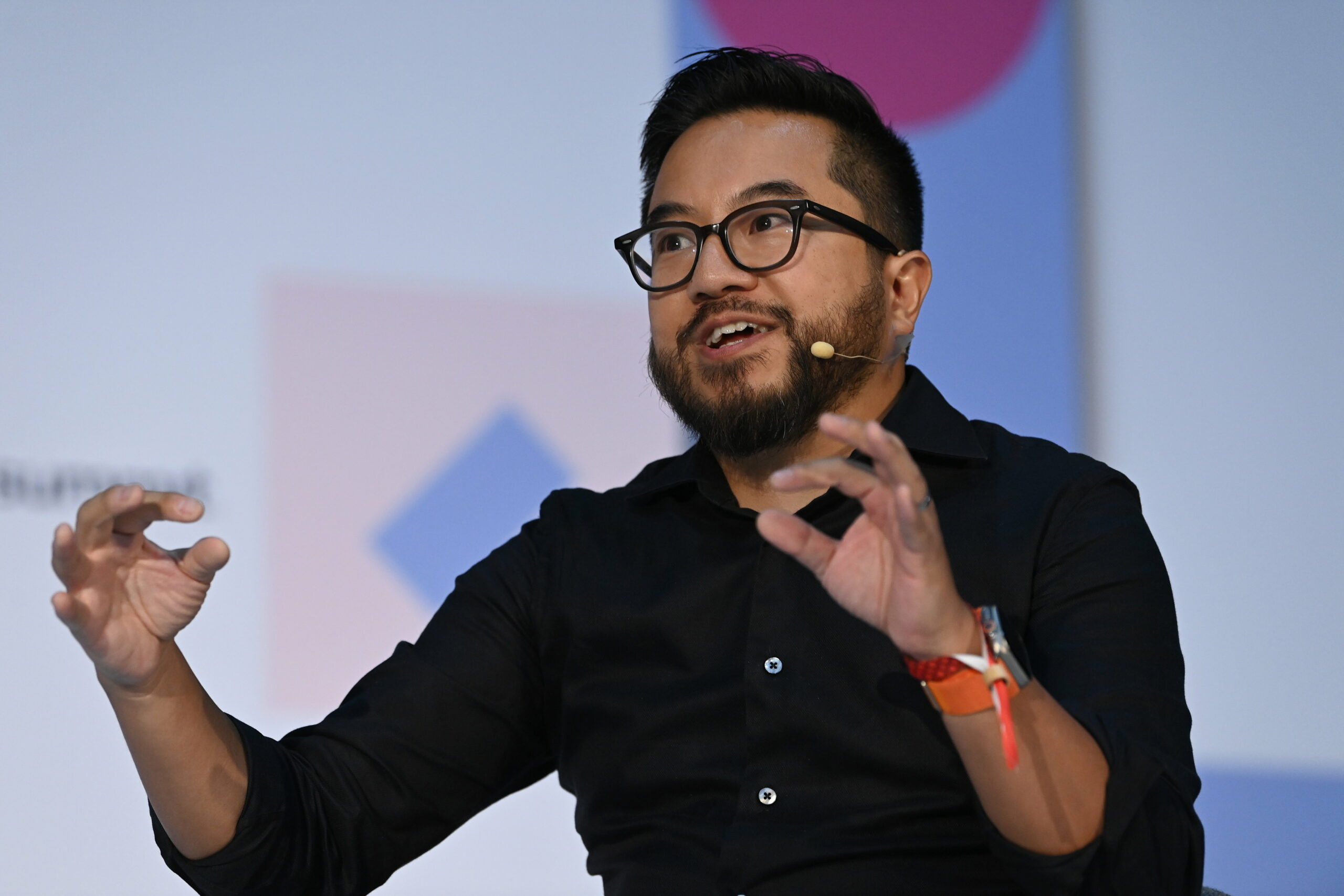Garry Tan, president and CEO of Y Combinator, runs one of San Francisco’s preeminent startup incubators. But the prolific investor doesn’t shy away from the city’s raucous politics and said on Wednesday that next year’s elections could bring a grand realignment in the city.
Next year—when a mayoral election is scheduled in addition to six supervisorial races—figures to be a landmark political season for San Francisco, with potentially competitive races already taking shape. And while Tan was clear he personally wouldn’t want to run for office, he implored his cohort of tech leaders to flex their political muscles.
“Many of our friends have left, but for those of us who are staying, we’re going to win,” Tan said at the Axios BFD dealmakers summit in San Francisco. “Twenty-twenty-four is the year where we make San Francisco common sense again, and I’m really excited about that.”
Tan took a tally of the recent political victories for what he characterized as “common sense”: The recall of three school board members last year, the recall of controversial District Attorney Chesa Boudin and the defeat of an incumbent “far left” supervisor on the city’s west side for the first time since the introduction of district elections.
“Zooming out, the most important thing is the people in this room, especially if you live in SF. You have a voice, and we’re being heard now,” Tan said. “There’s a lot of people who are very common sense. We have to support them and tell each other about them. We need to work on their campaigns. We need to donate to their campaigns.”
When asked about the biggest problems that the city faces, he pointed to the fentanyl crisis, where he says the city does not invest enough in recovery programs while calling himself a “big fan of harm reduction.” Other major issues he highlighted were pro-YIMBY housing policy and the debate around teaching math at local public schools.
“We’re all Democrats here; there’s no aisle there. Tax breaks or not, that’s not the important thing. What I want for the city is we should have safe streets,” Tan said. “If tech people are leaving, it means everyone else can’t stay here either.”
Remote Work Backlash
Another topic of conversation was the question of remote work, which has emptied out Downtown offices and threatened San Francisco’s economic recovery.
This week, Coco Republic became the latest retailer to pull the plug on its San Francisco location, blaming low foot traffic and issues around street conditions as primary factors. The retailer followed the notable exits of Nordstrom, Whole Foods and Anthropologie, among others.
In his role at Y Combinator, Tan said he’s been focused on bringing aspects of the startup incubator back in person. Y Combinator’s last batch of participants were 86% in person, and he plans to improve that to “99-100% this time.”
Tan touted the impact that in-person conversations and meetings can create, particularly for companies in early stages of their development.
“The one team that’s staring each other in the face and being able to have super high bandwidth communication, they’re probably going to beat the [remote] team nine times out of 10,” Tan said.
His comments echo a growing chorus of business leaders who have started to push back against widespread remote work in the tech sector.
Mark Zuckerberg cited productivity improvements from in-person work in his note announcing the layoff of 10,000 workers. OpenAI CEO Sam Altman called the industry’s rush to embrace permanent remote work one of its “worst mistakes in a long time.”
In another recent example, newly appointed Lyft CEO David Risher paired his decision to lay off around a quarter of the company’s workforce with a directive to get employees back in the office at least three days a week.
“My dream is that we’re going to fill every single new and old office building that’s empty right now and we’re going to fill it with brand new companies creating new products, maybe powered by AI,” Tan said. “These are things that are going to touch the entire world, and we’re going to build it right here.”
